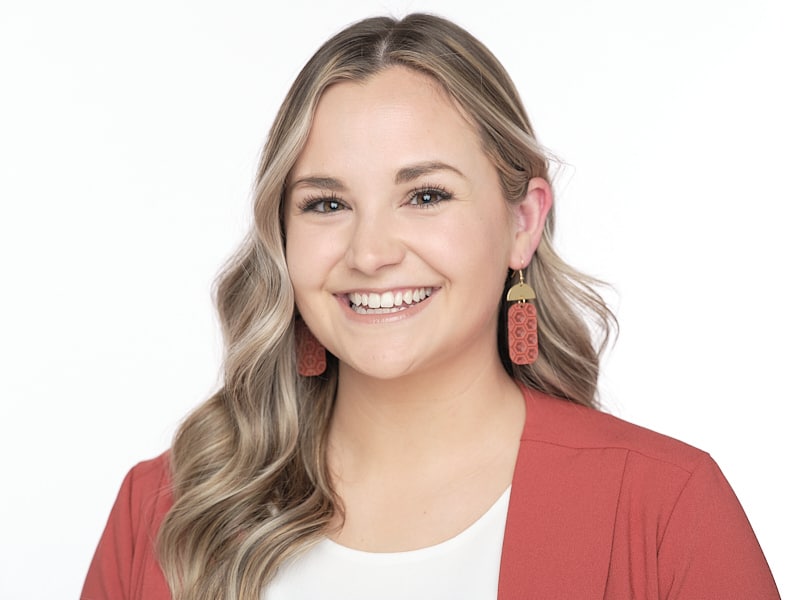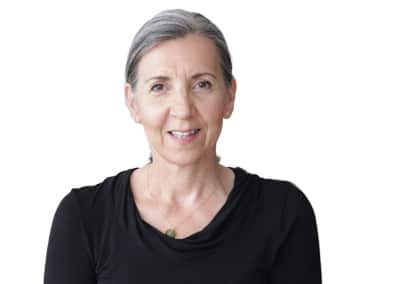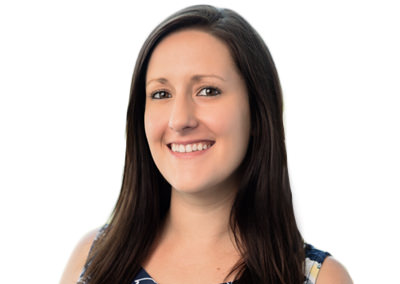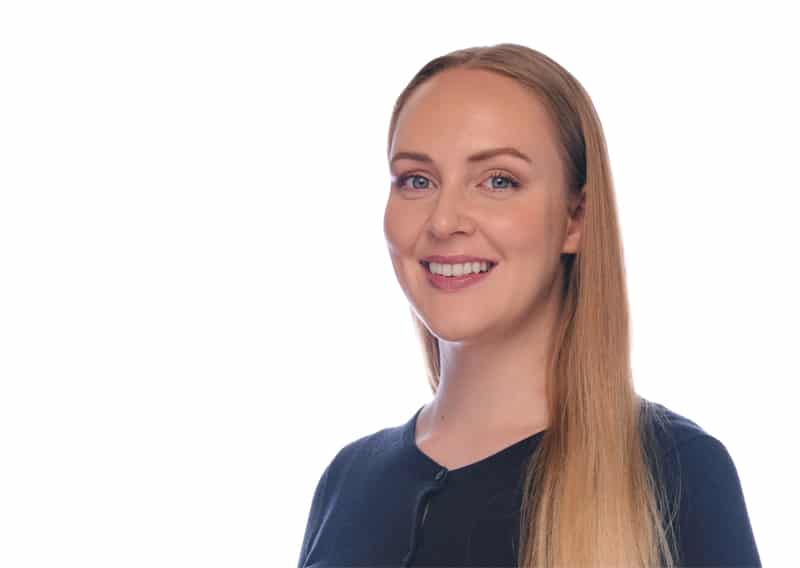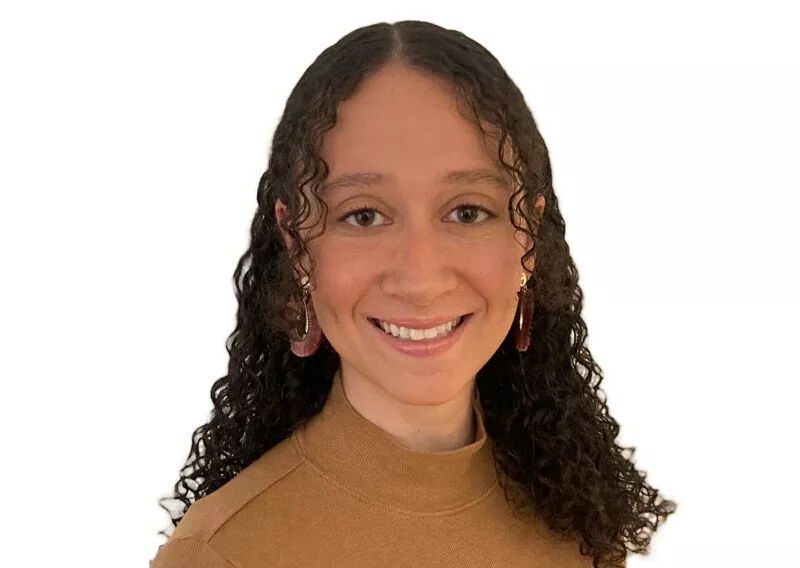
Questions About Therapy:
Evidence-Based Therapy & Coaching

Dr. Lisa Marie Bobby is a licensed psychologist, licensed marriage and family therapist, board-certified coach, AAMFT clinical supervisor, host of the Love, Happiness, and Success Podcast and founder of Growing Self.
Understanding Evidence-Based Practice
Evidence-Based Practice Matters
Takeaways: Not all growth work is created equal. This article will teach you why evidence-based practice matters, and how to choose an evidence-based therapist who practices effective, research-backed approaches to therapy or coaching.
- What is evidence-based practice in therapy?
- Evidence-based practice in practice
- Finding a therapist who uses evidence-based approaches
- Evidence-based relationship support
- Evidence-based career counseling
Understanding evidence-based practice in therapy empowers you to make wise choices. Getting involved in therapy, couples counseling, life coaching, or career coaching is a big step. It’s a significant investment of time, energy, and money in a personal growth process that can affect the trajectory of your life — but only if you get the right kind of help.
Before you jump in the pool, it’s worth being reminded that there is light and dark and all things. You deserve to know that not all therapists are good. Not all therapy is helpful. There are risks associated with connecting with the wrong provider using the wrong approach.
Why is this? Unlike the medical field, there is very little regulation or oversight around what, specifically, therapists and coaches are doing with their clients behind the closed door of the counseling office. Furthermore, the average consumer does not know how to evaluate therapists and discern a good one from a questionable one. This is a problem.
Far too many people perform quick online searches for professional help and hastily choose a provider without an understanding of skills and approaches. They assume that all therapy and all therapists are basically the same — and that’s not true. Who you work with matters a great deal.
Without a true understanding of evidence-based practice in therapy, you may be vulnerable to assuming that a therapist “knows what they’re doing,” to the detriment of your own wellbeing.
Knowledge is Empowerment
That’s why it’s vital to educate yourself about your options, learn the lingo, get familiar with professional qualifications, and understand the potential pitfalls to avoid when seeking therapy or coaching.
I believe you deserve to have the information to make informed decisions about who you work with. You also deserve to have a “yardstick” to measure whether or not you are genuinely benefitting from the approach your counselor or coach uses.
A basic understanding of evidence-based approaches to growth work will empower you to find a good therapist or coach and avoid a bad one, by evaluating their approach and whether it will actually help you achieve your goals.
In this article I put together for you, you’ll get an overview of evidence-based approaches, how we know what works in therapy or coaching (and what doesn’t), how to tell the difference between practitioners, and the different theoretical models of change that are relevant for your personal growth, healthy relationships, and professional success.
Armed with that understanding, you’ll be able to make wise decisions with confidence.
Let’s dive in!
What Is Evidence-Based Practice in Therapy?
These days, pretty much everybody — from the micro-influencer with a mommy blog to the bud-tender at your local dispensary — feels qualified to make sweeping statements about what’s wrong with you and what you should do to live your #bestlife. (“Of course you’re feeling overwhelmed, the new moon is in Virgo! Here, hold this magic rock and manifest yourself a new car.”)
Sometimes dubious advice is obvious, but when it’s promoted by someone with a bunch of letters after their name (or a “Dr.” in front of it), it can be harder to know what to believe. Even at its best, psychology is a “soft science,” and — as much as I love it — unfortunately, pseudo-science is rampant in this industry. Given this landscape, it’s more important than ever to be able to differentiate between trustworthy information and a talented entrepreneur’s razzle dazzle.
Especially when you are in a truly vulnerable position and dealing with something serious: a possible divorce, a suicidal child, a potentially deadly eating disorder or substance use disorder, or a debilitating major mental health situation — you need to know what to do, and where to get help. How do you find a trustworthy path forward?
Science!
Good science strives for honesty. Its core function is testing reality for you and then showing you the results. Good science builds on itself, and over time, its aggregations of collective understanding have taken us to amazing places.
It brought us all the way from Ben Franklin zapping himself with lighting, to silently gliding down the road in electric cars. Over the last hundred years, it took us from Herr Freud thinking, “that’s weird” about his suddenly blind patient, to developing a true understanding of trauma and recovery.
Similarly, we have attained so much when it comes to our understanding of the evidence-based approaches that are useful for personal growth, healthy relationships, and professional development, as well as mental health treatment. We know what works, and, for the most part, why it works.
Here’s how that happened:
Clinical Psychology Research
The gold standard for research in clinical psychology begins with taking two or more large groups of people who are similar to each other and have similar presenting issues, and then giving an assessment to measure their current state.
For research in clinical psychology, that means measuring the type and degree of mental health symptoms. For relational work or coaching, they may be asked to report on their current levels of satisfaction with their relationship, career clarity, or another area.
Once their “baseline” is known, one of the groups receives the type of intervention or approach being tested. The other group gets the counseling equivalent of a placebo. (They are handed a pamphlet, or put on a waitlist). Sometimes there are additional groups who get a different intervention than the one being tested, in order to have an additional comparison.
Then, both groups are re-assessed. If there are measurable differences between the groups, we can explore what outcomes the approach being tested produced.
Those are the basics. Psychological research can get much fancier than that. Researchers can play around with the number of groups, the impact of variables, the length of time people receive treatment, and they can conduct longitudinal studies to measure how long the benefits last.
In order to learn about the research behind different approaches, one type of study can be particularly helpful: a “meta-analysis.” This is a kind of study where researchers look at the combined results of many studies, in order to get a big picture view of what’s being investigated.
These studies are generally conducted in university settings, and sometimes in community mental health centers or large private organizations.
What is a “Soft Science?”
I recently watched the movie “Don’t Look Up” in which Leonardo Di Caprio played a scientist working out a mathematical formula on a whiteboard that revealed — to his horror — that a comet was going to hit the earth, and when it was going to happen.
Psychological research is not even remotely like that.
We do not have equations that provide certain evidence of anything. We have bell curves and scatter plots. And that’s the hard stuff. Qualitative research, while fascinating and useful, gets even squishier.
When it comes to the results that psychologists come up with, you need to know that they are based on statistics showing a spread of results among large groups of people.
This is an example of a bell curve:

What it’s showing you is a hypothetical normal distribution of outcomes. Most people are somewhere in the middle. Some people have fantastic results. Some people don’t. There are a lot of reasons why people can have different experiences.
To the great annoyance of behavioral psychologists, there are a number of ghosts in the machine. For example, there are “atheoretical factors” that are ethereal, difficult to articulate and measure, but which significantly impact outcomes on a case-by-case basis.
So, “hard science” is Leonardo Di Caprio’s scientist saying “we’re all going to die on Tuesday, May 4th, at 5:06 pm GST.” “Soft science” is a psychologist apologetically telling you that chances are something will probably be helpful but that your *actual* results may vary, depending on a number of highly individual and difficult to control variables. That’s the best we have.
Evidence-based practices in counseling and coaching are the ones that have research indicating that more people get good or better outcomes because of the approach that’s being studied, generally speaking. It’s not a guarantee, but it’s better than going down a path that has no evidence to support its benefit whatsoever.
Understanding the “Peer Review” Publication Process
Once a research study has been done and written up, with bell curves and scatter plots in hand, researchers then submit their studies to the publishing committee of scientific “peer-reviewed” journals.
Then a panel of experts in the field (“peers”) read through their methods and their findings. If deemed worthy (i.e. well-designed and trustworthy research methods and experimentation that has revealed meaningful new information) their results are published and made available to the larger professional community for further testing, scrutiny, and replication.
Looking for research that has been published in “peer-reviewed journals” is a good way to vet the trustworthiness of the information that you’re getting. And, of course, the internet being what it is, do read the fine print and be thoughtful about your sources.
There are some professional organizations that publish a number of journals in psychology, counseling, and coaching. This includes the American Psychological Association, the American Association for Marriage and Family Therapy, the British Psychological Society, and many others.
Access to High-Quality Research
You can find peer-reviewed journal articles by using the “Google Scholar” search feature (https://scholar.google.com/) although you may only be able to see the abstract, and not the full article.
It can be difficult for civilians to get access to all the information in these articles. The full texts of peer-reviewed journal articles are often only available to dues-paying members of the professional organizations that publish them, or online by subscription, or by paying for each article.
However, university libraries generally have access to special databases just for peer-reviewed scientific journals, and your local public library might too. You may be able to access them online by going through your local library’s website.
If you would like help accessing these journal articles, you can go to your public library’s reference desk and ask the librarian for help. (They would be THRILLED to help you. Reference librarians are sitting around all day just wishing for someone to ask them how to use EBSCO so they can leap into action and save the day.)
Empirical Support For Counseling… and Coaching
Thanks to many decades of accumulated investigation and research, we now know that some approaches to therapy, family therapy, and couples counseling are more effective than others.
It may surprise you to know that there is also a growing body of research in support of coaching theories and techniques too. While coaching is a newer profession, high-quality coaching practices are built on existing research from counseling psychology and use evidence-based techniques taken from psychological research.
There are evidence-based coaching approaches to personal growth, relationship improvement, and professional development. Peer-reviewed journals that report on emerging research in the field of coaching include The International Coaching Psychology Review, The Coaching Psychologist, and several others.
Learn more about the difference between therapy and coaching, if you’re interested.
Next: Evidence-Based Practice… and Practitioners.
Let’s Talk.
Schedule a Free Consultation Today.
Evidence-Based Practice, In Practice
I will be talking about specific forms of evidence-based therapy and coaching in the sections below, but before I do, it’s important to know a few other things that will help you understand the landscape when it comes to getting good help.
Common Factors
There are many different “flavors” of therapy, coaching, and couples counseling, and we’re going to be talking about many of them. I know that it can feel overwhelming at first to sort through them all.
Here’s an idea to help you wrap your brain around everything: Bread. (Stay with me.) Just like the basic ingredients of bread are always flour + water + yeast/leavening, there are main, basic components of all high-quality therapy and coaching.
You can get very fancy with bread: caraway seeds, different kinds of flours, sweetbreads, herby focaccia, throw a banana in there… but they’re still all bread because they have flour + water + yeast. It’s the same with evidence-based therapy and coaching. The good ones work because they have common elements at the core.
Some of these, like Attachment Theory, Systems Theory, Cognitive Theory, and Behavioral Theory, are very well-grounded in science. We can see these in action, measure them, and be pretty sure that they’re the “active ingredient.” All types of effective therapy and coaching have at least some of these ingredients.
But there’s some magic sprinkled in there too.
In the 1960s and 1970s, people were ripping off their ties, burning bras, growing their hair out, and starting to pay attention to what the beatniks had been up to in Esalen. Research in counseling psychology exploded. Decades of endless introspective psychoanalysis were shaken up by much more active and dynamic forms of psychotherapy, much of it coming from humanistic psychologists and the comparatively wild family therapy contingent.
Many of these new approaches were championed by extremely talented and charismatic visionaries, such as Fritz Perls and Virginia Satir. Their experiential approach was akin to performance art, and just as powerful. They helped people create profound new awareness about themselves that was genuinely transformational, yet hard to explain. Similarly, Carl Rogers found evidence to suggest that how you felt about your therapist actually mattered a lot in terms of outcomes, which was quite subversive at the time.
However, because the experiences they created for individuals were nearly impossible to quantify or replicate, especially large-scale, many of these specific approaches withered under the scrutiny of evidence-based research. Yet their main ideas about experience and connection have since been shown to be the “secret sauce” of efficacy.
There is always water in bread. Without it, you’d have an unappetizing, dusty pile of flour and yeast. A therapist’s ability to authentically connect with you and help you develop meaningful new self-awareness is like the water. It’s fundamentally necessary for anything else to work. Researchers call these “atheoretical factors.”
Atheoretical Factors
“Atheoretical factors” can be hard to put your finger on, but they impact outcomes in the behavioral sciences — sometimes even more than the “evidence-based approach” that’s the subject of study.
Alliance. For example, the “therapeutic alliance” or “coaching alliance,” refers to the amount of trust or comfort you have with the therapist or coach you’re working with.
You could be working with the most blazingly smart, competent, and on-point therapist using The Best Therapy Ever… but if you don’t like them, don’t trust them, and don’t feel good about what you’re doing, it’s not going to work.
You’d get better results with a therapist you felt close to, provided that their methods were “good enough.” The relationship is more important than having a therapist or coach that uses the most perfectly perfect technique.
So in addition to seeking a therapist that checks the boxes, please trust your gut too.
Stages of Change. Similarly, “stages of change” are very real. People go through a process of readiness before they’re mentally and emotionally ready to grow. If you try to force growth and change before someone has internally become receptive to it, it does not work.
Ready for a corny therapist joke?
How many therapists does it take to change a lightbulb?
Just one…
but the lightbulb has to want to change.
It’s so true. This is why you can’t make other people change. It has to be self-motivated. If someone doesn’t think they have a problem or any desire to have things be different, they will not be receptive to any efforts to help them — evidence-based or not.
People go through a process on the way to being ready. Researching and thinking about options is part of the on-ramp toward growth. If that’s what you’re doing here today — contemplating and planning — congratulations. You’re on your way.
Experience. Growth is an experiential process. It is not informational. In order to have a truly meaningful experience in any type of personal growth work, it has to be a “felt experience” that connects intellectual understanding with emotion. It needs to generate new self-awareness that becomes the foundation of real and lasting change.
This is the experience of good therapy: Even just the physical act of speaking words that you’ve never really thought about before changes things in your brain, literally. Few practitioners do psychodrama or family sculptures anymore, but the hippies in Big Sur were on to something with the experiences they helped people have.
I sometimes have people show up for therapy or coaching, (or even in the comments section of our blog), and drop something big like, “We’re emotionally disconnected and fundamentally don’t trust each other but have four kids, what should we do?” and then wait expectantly for the answer that’s going to reveal all.
There is nothing that I, or any other therapist, is going to say that will change or repair this situation. If this relationship can be healed, it will be through many incremental experiences in and out of the counseling room that re-shape each partner’s understanding of themselves, and each other, over a long time. Each new experience and awareness is like an individual sheet of tissue paper laid down over a surface. The first few layers are only a thin covering, but after many layers, the surface is transformed. In this way, experiences in counseling can transform the way you think, feel, and behave. It is an experiential process.
There are many things being represented as “therapy” these days, from online courses to text-chats. Learning is great. Writing through journaling prompts is great. Listening to podcasts is great. Getting advice texts on an app is great. But let’s please call them what they are.
Atheoretical Factors Are Not Enough
There are many common factors of all productive therapy and coaching. We need the water for sure — the atheoretical “magic” factors that make everything else stick together. But without flour and yeast, a glass of water is just a glass of water. It’s not bread.
You can find a lot of therapists who are very happy to hand you a glass of water (or organic, ethically-harvested Moroccan mint tea) and call it good. They are warm and loving, they help you talk about everything, cry on their couch, and connect all the dots, and can certainly help you feel motivated to want to make changes. While therapy won’t work without those things, just because they’re present doesn’t mean it will work. In addition to atheoretical factors, you need to have substance. More on “talk therapy” here.
The therapists and coaches who can actually help you make the changes and experience different outcomes are also going to be using the active ingredients of change — the flour + yeast — the core ingredients of evidence-based therapy and coaching. And when those are present, in addition to water, in whatever flavor combination, it’s probably going to work.
Understanding Equifinality
“All roads lead to Rome,” a wise supervisor of mine once said. So, while not all types of therapy and coaching are equally helpful, there are many valid, evidence-based approaches that will get you where you want to go. Remember: Many kinds of bread.
The term “equifinality” means that we can arrive at the same ending point by a variety of different routes. For example, you could work with a coach who uses Cognitive Behavioral techniques, or a coach who uses a Solution-Focused approach… and get a similar end result, despite having very different experiences along the way.
While it is very important to seek out evidence-based practices that you can have confidence in, especially if you’re dealing with something serious, it’s also important to know that there may be a number of different approaches that will all be helpful to you. Just because one approach works doesn’t mean another one won’t.
Integrative Evidence-Based Approaches
Younger, less experienced therapists can sometimes get extremely zealous about one form of therapy or another being The Way. The Only. Way. Very experienced therapists and coaches have the humility to know that different people need different things, and they are often well versed in more than one way of helping people.
Expert therapists will often take an “integrative approach,” combining a variety of evidence-based modalities. They might use CBT to help one client, and solution-focused techniques for another. They might even use a number of different strategies with you at different points in time, depending on what you need in order to keep moving forward.
I hope that helps ease any anxiety you may have about finding the person who uses exactly the “right” approach. The good ones all have similar core components, and in the hands of a competent practitioner who you feel good about (and if you’re ready), they all work.
With those caveats in mind, let’s talk about strategies you can use for finding evidence-based support, as well as more information about specific evidence-based approaches.
Next: The Right Approach + The Right Provider
Let’s Talk.
Schedule a Free Consultation Today.
Finding Evidence-Based Support
The Right Approach + The Right Provider
It can be a bit of a process to find the right person to help you achieve your specific goals. You need to find someone competent to help you but also someone that you feel good about.
Here are my recommendations for how to find your helper, in a variety of different situations.
Finding Evidence-Based Mental Health Treatment
The online environment being what it is, I’m not sure if you arrived at this article after already being familiar with what’s going on at this practice, Growing Self Counseling and Coaching, or if you got here through a Google search-related side door.
To orient you as to where you are: You should know that here at Growing Self, we specialize in “Love, Happiness, and Success.” Specifically, we focus on healthy relationships, personal growth, and career development.
While everyone on this team is an excellent therapist who is entirely competent to help with mild mental health issues, we do not specialize in clinical mental health treatment.
If you or a loved one is struggling with a serious psychiatric diagnosis this is not the right place for you to get help…. And it’s really important that you get the right help! The following section has information and ideas to help you get connected to the right evidence-based mental health treatment provider through a different practice.
On that note, if you are here because you are experiencing a true mental health crisis or personal crisis (suicidality, psychosis, abuse, domestic violence, homelessness, food insecurity, etc.) I would advise you to seek emergency services first, before trying to contact a therapist. Stabilize first, my friend. I have put together yet another resource to help you get connected to support systems in your area. >>> Emergency Resources <<<
Find a Legitimate Expert
If you’re looking for evidence-based treatment for mental health issues, the first thing to know is that there are practitioners who are true experts in the treatment of specific conditions. Things like eating disorders, substance use disorders, trauma and recovery, bipolar disorder, and other serious mood disorders (major depressive disorder, etc.) are complex. They require a high degree of knowledge and skill in evidence-based practice for the treatment of that condition in order to treat it successfully.
Find a Team
If you are dealing with a serious diagnosis, often your best bet is to work with a team that includes medical professionals as well as therapists. You can cobble this together on your own, finding a doctor to prescribe medication, a therapist for psychotherapy, and a different therapist for family therapy, etc. Or you can get in touch with a facility that offers access to multiple professionals working together in coordination, like in the case of a rehab facility, eating disorder clinic, or community mental health center.
A community mental health center is more likely to have a multi-disciplinary team of practitioners pulling in the same direction and using evidence-based approaches in a coordinated way. This can also happen in good clinics or agency settings, but not always — particularly with private organizations.
Vet Private Practitioners
Solo private practitioners — particularly those who are not bound to provide evidence-based treatment according to their contractual obligation to a health insurance company — are going to be the iffiest in terms of their allegiance to evidence-based mental health treatment protocols.
Remember, there’s not much regulation around what therapists actually do, and because of confidentiality laws, nobody knows what happens in the therapy room besides you and your therapist. If you’re going to work with a therapist in private practice, it’s important to vet them carefully. More on this in a moment.
Research Specific Treatments
If you are here skimming through this in hopes of learning more about evidence-based treatment for your specific clinical mental health condition my advice is this:
Read through what I’m offering in the sections below about the types of evidence-based approaches to therapy and coaching to familiarize yourself with the most common ones. Then, do some searches using Google Scholar.
For example, type “evidence-based treatment for bipolar disorder” and review the types of approaches that have been studied, and the results of those studies. In particular, “meta-analyses” are useful. These are essentially studies of studies and can provide you an overview of the existing evidence for a particular approach.
Then, when you’re evaluating therapists to help you with that specific diagnosis, you can ask them questions to make sure they use the evidence-based approach(es) that you know are useful in treating your symptoms.
Finding Evidence-Based Providers
I love my chosen profession and know for a fact that there are so many ethical, good, and effective counselors and coaches in the world providing a lot of help for people. I also feel a duty to let you know that there is quite a bit of darkness in this field too, and — particularly for uninformed or vulnerable people — it can be quite damaging. Who you work with matters.
Any therapist in private practice with a website can say they provide anything: Couples counseling, certain types of mental health treatment, or that they can help you be happy and love your life. Can they? How do you know?
Here’s a crash course in what to look for (and what to avoid) in figuring out whether a therapist is going to be genuinely effective and competent to help you:
Professional Qualifications Matter
To find a good coach or counselor, look for a qualified therapist with a high-quality education and training background. Just because they do is not a guarantee that they’re evidence-based practitioners, but if they don’t have a solid background, that’s a warning sign.
Pay attention to credentials: Especially if you’re seeking therapy in Denver, Colorado, or another state with very little regulation around the practice of psychotherapy.
The truth about therapy in Colorado is that in years past literally anyone — with zero education or professional qualifications whatsoever — could register with the state to become a “registered psychotherapist**” and essentially practice whatever kind of “therapy” they want.
Let’s just pause a moment to let that nightmare sink in.
Recently, and thankfully, new legislation was passed in Colorado to change the term to “unlicensed psychotherapist” in order to be more clear that these people weren’t licensed therapists.
But… they can still call themselves psychotherapists, and most unsuspecting consumers don’t have any idea that there’s a difference. Or that the “therapist” they’re seeing may not have a high school diploma, much less a graduate degree.
Similarly, it is also important for you to know that you don’t need to take a class, pass a test, or not be a registered sex offender in order to be a “coach.” Literally, anyone can call themselves a “coach” and offer coaching services. It is a completely unregulated profession.
** Side note: “Registered Psychotherapists” are what actual, licensed therapists are called in Canada. So if you encounter a Canadian Registered Psychotherapist, don’t be alarmed. We have a couple of them on our team, and they’re very nice.
Quality Education Matters
Even licensed therapists with graduate degrees in counseling and psychology vary widely in their actual training. This situation has been compounded by the rise of unaccredited, for-profit, fully online graduate counseling programs. If you can pass an open book exam and write a basic paper, pay the money (or get a student loan), and click through online videos about how to do therapy, you too can get a master’s degree or a doctorate in counseling psychology.
Even brick-and-mortar graduate programs can emphasize well-meaning but questionable approaches like dance therapy, color therapy, wilderness therapy, transpersonal psychology and more. I’m not completely sure what “color therapy” is — I imagine it to be kind of like an expensive spa treatment — and I’m sure it’s a pleasant wellness experience. But if my child was struggling with bipolar disorder and threatening to jump out a window, a therapist with a degree emphasizing color therapy would not be good enough for me. It’s not good enough for you either.
In contrast, a graduate program accredited by COAMFTE (for family therapy), CACREP (for counseling psychology), or APA (for clinical psychology) is going to have much stricter standards. To graduate from these programs, you must complete a curriculum that meets the educational requirements necessary to attain licensure and clock several hundred hours of supervised clinical practice with clients, before being unleashed into the world as a therapist. In-person schools are also more effective filters for identifying well-meaning-but-unwell people who are attracted to this profession. This is a good thing!
So if you’re vetting a prospective therapist, take two extra minutes and look up the university program where they obtained their master’s degree or doctorate just to get a sense of the therapist incubator from which they hatched.
Specialized Expertise Matters
Did you know that approximately 95% of licensed therapists offering “couples counseling” as a service to their clients have no specialized education or training in couples therapy?
I, personally, am both a licensed psychologist (LP) and a licensed marriage and family therapist (LMFT). I spent eight years in graduate school. I completed a Master’s degree with many specialized classes in couples and family therapy, and then a PhD in counseling psychology with one class in couples and family therapy (but learned about a lot of other things).
After graduating, I spent over four years working under supervision and accumulating clinical hours in order to attain both licensures. I’ve also done a number of post-graduate trainings on evidence-based approaches to couples therapy, have nearly two decades of experience under my belt, and am a clinical supervisor of marriage and family therapist candidates working toward licensure.
And I still find couples therapy challenging to do well at times.
“Scope of Competence” Matters
Most non-MFT therapists have had, at best, one class in couples counseling. Like I had one class in substance abuse counseling. I am in no way qualified to provide substance abuse counseling.
If I were, I’d be a “licensed addictions counselor” which would mean that I had specialized education and experience in helping people deal with that specific issue. Yet I could still absolutely accept clients seeking my help for treating their substance use disorder if I wanted to.
Just like mental health counselors, clinical psychologists, or social workers can accept clients seeking help for their relationship problems — whether or not they’re qualified to do so.
An important area of ethics in counseling is around the idea of “practicing within your scope of competence.” But practitioners are essentially self-regulated. This means that public safety depends on a practitioner’s humble awareness of their own limitations.
Unless, of course, you are an informed consumer who understands what different kinds of training and credentials mean. Just the fact of your reading this article puts you at a huge advantage in assessing a prospective therapist’s scope of competence.
Here is more information to support you in developing this knowledge:
- How to find a therapist
- How to find a marriage counselor
- How to find a life coach
- How to find a career coach
- Find the best dating coach
Pseudoscience in Psychology
You should also be aware that pseudoscience is rampant in therapy, coaching, and the self-help industry. Certain pseudoscience “therapy” approaches can create confusion and harm, particularly if they have a spiritual or supernatural bent.
If you are seeking that type of experience, I have zero judgment and believe you have the right to engage in growth work that is personally meaningful to you. But I also believe that you have the right to know there is no scientific evidence that any of those approaches are effective at treating mental health symptoms.
Even among educated, licensed professionals, there is a wide range of variability in approaches and effectiveness. It’s easy to wander into the office of a credentialed, licensed mental health professional, only to learn later that they use past life regression, or “tapping” techniques that purport to “change your energy,” contact with “spirit guides,” or magical thinking, astrology, dream analysis, or religious or “spiritual” counseling, particularly if it doesn’t line up with your belief system.
I say this as a seasoned mental health professional who has seen a lot: Especially if you’re dealing with something serious, you must be very cautious about who you work with. And do not be dazzled by impressive-sounding credentials!
The Psychiatrist / Excorcist
True story: I had a close colleague who is also a psychologist refer a client with psychotic symptoms to a psychiatrist in Denver (yes, a medical doctor) to see about adjusting his medications. The client reported back that he was told by the psychiatrist that an exorcism was in order. Really.
My colleague, who is a very responsible, good psychologist put a follow-up call into this psychiatrist, thinking perhaps the client had been mistaken, or his delusions had led him to believe something that wasn’t true.
Instead, when they connected on the phone, the psychiatrist confirmed the recommendation and explained that she did “spiritual coaching” as well as psychiatry. She said a demon had entered this young man’s body when he was a toddler, and until it was exorcised, the patient would suffer from delusional thoughts and auditory hallucinations. She concluded the call by condescendingly saying to my colleague, “I don’t expect you to understand.”
This is so beyond not okay on any level. Yet this is out there, and more common than you might think. That’s why I’m sharing this story with you. It’s easy to make assumptions about competence when someone has a professional title. It happened to me, too.
You Don’t See it Coming
Once, early in my career managing a group practice, I invited a licensed therapist to join us who had a good reputation and went to the same excellent master’s program at the University of Colorado that I did. Of course, I interviewed her beforehand, did my reference calls, and was told by her and her references that she did standard-issue therapy, couples counseling, and coaching. Green light, right?
Only months later did I discover that she was providing “past life regression therapy” to people. As in, someone would report anxiety, she’d hypnotize them, “discover” that they’d been murdered by a firing squad in Nazi Germany, and then provide treatment to help them resolve that past life trauma so that they’d feel better in the here and now.
When I confronted her about this and told her it wasn’t acceptable to steer clients of this practice in that direction, she became very angry with me. She informed me that in the 1500s we’d been witches together in a coven and I ratted her out to the Spanish Inquisition, causing her to be burned at the stake — and here I was again, basically doing the same thing.
People, you can’t make this stuff up — and it’s out there.
If you’re in therapy and something doesn’t feel right to you, pay attention to that. It’s easy to assume “a professional” with a degree or bunch of letters after their name knows what they’re doing, but not every therapist is trustworthy and ethical.
Remember that you have the right to ask questions, to know what the plan is, and to have a therapist explain, in detail, how their recommendations will help you achieve your goals in a way that makes sense to you. If you’re not getting that, at the very least, get a second opinion.
Avoid Unethical or Unwell Therapists
I will also add that if someone you know is vulnerable (like the young man I described above, or an elderly person, or someone with a long history of abusive relationships), they may need your help to get into genuinely effective treatment or avoid bad situations.
I have a close colleague who is on the marriage and family licensing board here in Colorado, and they regularly have cases of licensed therapists doing truly shocking and illegal things with clients.
There can be a very real power differential between the “expert therapist” and the “disordered patient in need of help.” If you are concerned that a friend or loved one is being harmed or exploited by an unethical (or, in some cases, unwell) therapist, contact your state’s regulatory agency or mental health licensing board.
Evidence-Based Practice For Love, Happiness & Success
Thanks for taking the time to learn about the foundations of evidence-based practice with me today. I hope what you’ve read so far has helped generate an understanding of what “evidence-based practice” means, how to find an evidence-based practitioner for specific types of issues, and how to avoid some of the potential pitfalls you can encounter when seeking help from a therapist.
If you’re seeking help for a clinical mental health issue, I hope that the information I’ve shared so far is enough to point you in the right direction and find trustworthy help.
Now, I’d like to introduce you to specific kinds of evidence-based practices that are relevant to the work we do here at Growing Self, which is helping you create Love, Happiness, and Success.
The evidence-based counseling and coaching strategies we use are ones that have broad applications and can be useful tools for resolving many different types of issues. But I will be talking about their applicability to help you build healthy relationships, achieve personal growth and goals, develop yourself, and support your professional development.
Next: Evidence-Based Approaches For Healthy Relationships
Let’s Talk.
Schedule a Free Consultation Today.
Evidence-Based Approaches For Healthy Relationships
Systems Theory + Attachment Theory
At the heart of high-quality relational work, there are two main and related theories that inform evidence-based approaches to both couples and family therapy, and evidence-based relationship coaching: Systems theory and attachment theory.
These theories are the core “active ingredients” that guide effective work around a variety of relational issues. If you’re seeking to:
- Improve your relationship with your partner
- Strengthen your family through family therapy or a parenting coach
- Work on your relationships individually in order to have better boundaries, healthier relationships, or higher levels of emotional intelligence
- Move past a difficult breakup or divorce
- Work with a dating coach to find “the one”
- Or succeed in an organizational environment
Counseling and coaching approaches that utilize systems theory and attachment theory will be very helpful to you. The evidence-based approaches to couples and family therapy I’ll be discussing here are relevant for you in improving all your relationships, even if you’re not specifically seeking couples therapy.
The theories and research related to couples and family therapy are also the underpinnings of effective relationship coaching, which draws on many of the same concepts as family therapy. The difference is that family therapy (including couples) can be used to treat mental health conditions, while relationship coaching is for relationship improvement.
More about the differences between couples therapy and relationship coaching here.
Systems Theory
What is Systems Theory?
Systems theory is the foundation of all other evidence-based forms of couples and family therapy. While it was developed in the realm of therapy, systems theory has broad applications above and beyond mental health treatment, including coaching and even organizational psychology.
Systems theory helps us understand that in relationships we are an interdependent part of a relational system that we act upon and react to. We impact it and it impacts us.
All Relationships Are Systems
Whether in a couple, part of a family, or even part of a work group: You react to situations, and then your reactions impact others, and they have reactions to your reactions, and so on. Some relationship systems are healthy and supportive: Kindness and generosity elicit positive responses, which makes it easier to be kind and generous.
Other relationship systems can spin in unhealthy or even toxic directions. Remember the last time that you interpreted your partner’s behavior as being unkind towards you, which made you feel entitled to act unkindly towards them? That’s what I’m talking about.
At the core of all relationship conflict (or health) is a systemic process. When you’re in a conflictual situation it’s because someone did or said something that didn’t feel good to you, so you had a reaction, and then they reacted to your reaction, and then you reacted to that. Off you go.
Improve Relationships Through Positive Actions & Reactions
Attachment theory (discussed in the next section) helps us understand why people react in certain ways and informs us of what we need to do differently. But unless you’re firmly grounded in systems theory it’s incredibly easy to blame other people for the problem, which tends to perpetuate relationship issues rather than resolve them.
Couples can easily get caught in a spiral of negative reactions that pulls them both down the drain, taking their relationships with it. So can families. When it comes to things like dating coaching or emotional intelligence coaching, the first step is understanding the systemic impact that we may be having on the reactions of others.
The good news is that, when you work with a systemically-minded counselor, you can create a powerful, positive spiral that pulls you both up. Systems theory helps us recognize our part in creating the relationship system, and become empowered to change it.
Once you understand relational dynamics, you can influence the responses you get from others — whether or not they are involved in therapy or coaching with you. That’s why it’s possible to change your relationship unilaterally, even if your partner refuses couples counseling, and why parenting coaching can change behaviors in children, whether or not they participate in family therapy sessions.
MFTs Specialize in Relational Systems
When we take a systems perspective to relationship work, we’re looking at the whole system, and how each component of the system is creating it, rather than focusing on the “issues” of the individuals involved.
Most mental health professionals including clinical psychologists and licensed therapists are trained to diagnose and treat mental health disorders that — from their education in abnormal psychology — are viewed as stemming from the individual. Sometimes, of course, individuals in relationships do have mental health conditions that require treatment before their relationships can improve.
But sometimes people are not feeling good or behaving well because of the experiences they are having in their relationships. Furthermore, having positive and healthy relationships can be instrumental in healing and managing certain mental health conditions — particularly trauma. (Any trauma survivor who’s ever woken from a nightmare at 3 a.m. and been able to sob in the arms of a loving partner knows the truth).
Marriage and Family Therapists are unique among the helping professions (psychologists, counselors, social workers) in that our training emphasizes understanding and working with systems — helping people understand and manage their responses to each other. This perspective is incredibly important to helping you create positive change in your relationships.
Attachment Theory
What is Attachment Theory?
Attachment theory is the other most powerful and essential research-backed knowledge base that helps us understand and repair our relationships. The science of attachment runs through every approach to evidence-based couples and family therapy… and it’s as old as humanity itself.
Humans are built to bond to each other, biologically, neurologically, psychologically, and emotionally. There are systems in your brain and body, many of them non-conscious, that are all about bonding. They are powerful, because they are related to primary survival drives.
From an evolutionary perspective, creating and maintaining attachment bonds is about as important as feeding yourself and not freezing to death. Attachment theory helps us understand the power of human bonding, and how it impacts every part of our lives: from our self-concept to the way we relate to others.
Childhood Attachment
Human beings develop in connection with other people — literally. Having secure and healthy relationships with others in infancy and early childhood is the foundation of emotional health and wellness.
Secure attachment in early life is necessary for physical health as well as healthy neurological development. Disruptions or attachment traumas early in life create profound distress and are associated with many chronic mental health problems.
Adult Attachment
Our attachment needs do not evaporate once we’re out of the nursery. Secure, enduring attachments are central to our wellness at every stage of life. Feeling loved and connected is vital for all of us — whether or not we’re fully aware of our attachment needs. We all have different attachment styles, and understanding your attachment patterns can help you improve your relationships with others.
Forms of relationship therapy or coaching that do not take the strength and quality of attachment bonds into account tend to feel superficial, and like they’re not touching the core issues of a relationship. That’s why counselors who are not truly qualified to provide couples therapy will often find that their reasonable-seeming interventions (“go on a date night”) will fall flat, or even make things worse.
Understanding the science of attachment is also essential to the success of effective divorce counseling and breakup recovery work, sex therapy, affair recovery work, as well as dating coaching, and parent coaching too.
Evidence-Based Couples Counseling, Family Therapy & Relationship Coaching Strategies
While both systems theory and attachment theory are at the heart of all evidence-based approaches to couples counseling, family therapy, and relationship coaching, there are specific modalities — therapeutic orientations — that inform the specifics of how practitioners operate.
Here are some of the most common evidence-based approaches to relational work:
Emotion-Focused Couples Therapy
Emotion-Focused Couples Therapy (EFT) builds on the science of attachment theory to understand what causes conflict, and how to fix it.
Many of the marriage counselors and relationship coaches on the team here at Growing Self are primarily guided by the Emotionally Focused Couples Therapy model pioneered by Susan Johnson, Ph.D. which is based on Attachment Theory. This approach emphasizes creating connection, supportive, emotionally safe communication and new bonding experiences.
What is Emotionally Focused Couples Therapy?
EFT helps couples rebuild their strong emotional bonds so they feel validated, emotionally safe, seen, heard, and understood by each other. They can be vulnerable with each other, and turn toward each other for love and nurturing. Common “communication issues”, like expressions of anger, fighting, withdrawal, defensiveness, and avoidance are all seen as expressions of people coping with disrupted attachment in the relationship.
EFT provides a structured roadmap for couples counselors to assess attachment in a relationship, and to use heightened emotions to help them move through the stages of repairing their strong bond. EFT has a solid body of evidence to support its efficacy. Research shows that couples who have successfully completed EFT have significant and long-lasting positive changes in their self-reports of relationship satisfaction.
EFT has also been found to be an effective treatment for a variety of mental health conditions including posttraumatic stress disorder, major depressive disorder, generalized anxiety disorder, and others.
Attachment-Based Relationship Coaching
Because human attachment bonds are so fundamental to happy, secure, and fulfilling relationships, an expert relationship coach will often use the principles of attachment theory and EFT techniques in relationship coaching.
The difference is that a relationship coach using emotionally focused ideas and techniques in the context of relationship coaching is doing so for the purpose of growth and goal attainment, not mental health treatment. This type of relationship coaching is appropriate when you and your partner are fundamentally healthy and seeking to improve your relationship, create a deeper connection, increase sexual intimacy, improve your communication, heal after hurt, restore trust and feelings of security, and achieve shared goals.
Gottman Method Couples Therapy
Many of the marriage and family therapists on our team use the Gottman Method approach for relationship work.
The Gottman Method is a system for couples therapy based on the internationally lauded research of Dr. John Gottman. Gottman spent decades documenting the differences between healthy and unhealthy relationships, and clearly demonstrating the steps couples must take to repair their relationships and cultivate health.
In contrast to the EFT approach that emphasizes rebuilding your connection through emotion (and then adding new behaviors), the Gottman Method does the opposite. The idea is that by learning how to show up differently in your relationship, you help your partner feel loved and respected. This changes the system, and they respond to you differently as a result. It becomes easier and easier to build positive interactions.
Like EFT, the Gottman Method is built on the basic foundations of systemic family therapy, and has broad utility for helping couples improve their relationships. This evidence-based approach can also be used in a family therapy context to assist couples in treating mental illnesses (depression, anxiety, substance use disorders, eating disorders, or trauma).
Gottman-Informed Relationship Coaching
Ideas and techniques drawn from the Gottman Method are highly effective in relationship coaching as well.
The Gottman Method emphasizes practicing healthy relationship skills, like how to communicate well, how to stop “fixing” and start listening, and how to show your partner love through day-to-day behaviors.
A relationship coach using the Gottman method will assess your relationship to understand what is getting in the way of your relationship goals. Then they’ll help you construct an “action plan” that incorporates strategic homework assignments to help you learn and practice new ways of relating.
This concrete, action-oriented approach helps you achieve goals for your relationship including improved communication, enjoying each other again, feeling more connected, productively resolving conflict, improving sexual intimacy, creating a more equitable partnership, resolving financial differences, parenting together, increasing positive moments between you, and creating shared hopes and goals for your future.
Narrative Family Therapy
With narrative family therapy, your “issues” are separated from who you are. You stop buying into the “old story” of who you are or what you’re capable of (or who your partner is, and what they’re capable of) and become free to experiment with new ways of being. This method of couples and family therapy has similarities in common with Feminist Family Therapy in that it helps couples explore, and re-evaluate their roles, “rules,” expectations and assumptions.
This approach is incredibly helpful for couples in cross-cultural relationships because it helps them see the world through their partner’s eyes. This allows them to step away from power struggles about who is “right” and develop a more collaborative and inclusive approach to creating connection in their relationship.
Changing your narrative changes the way you feel, and how you behave — personally, professionally, and in our relationships. And when we change what we do, the system changes in response.
Narrative Techniques in Relationship Coaching
The first step of relationship coaching is a comprehensive relationship assessment to understand yourself and your partner. Narrative techniques help both of you develop a new perspective of each other, as well as the new opportunities you can co-create as a couple.
Through this new understanding, unproductive conflict, and feelings of unhappiness or “persecution” are often replaced by empathy. This makes it much easier to respond to your partner in constructive ways that empower your partnership.
When you change the story you’re telling yourself about yourselves and each other to one that’s more positive and resilient, you strengthen your attachment bonds and your relationship grows.
Evidence-Based Family Therapy: Theory and Techniques
There are a number of older approaches to family therapy that incorporate elements of systems and attachment theories and have stood the test of time. They remain helpful methods for understanding and improving human relationships. You’ll find elements of these theories and techniques used by knowledgeable family therapists, couples counselors, and relationship coaches to this day.
Bowen Family Therapy
In the Bowen model of family therapy, one of the goals is to help clients become less reactive to each other. So, for example, just because your partner is upset doesn’t mean that you have to be. This process of “differentiation” creates stability in the system because you become more empowered and in control of your own reactions.
When you manage your reactions in a positive way, you create emotional safety (attachment theory) and get a better response from your partner, child, friend, or coworker (systems theory).
Core concepts from Bowen family therapy are useful in relationship coaching, parent coaching, and emotional intelligence coaching.
Structural Family Therapy
A structural family therapist focuses on the boundaries a system has… or doesn’t have. This type of family therapy helps you identify your role in the family system, and how it impacts others. Figuring out where you stop and where others start (and who should do what in a healthy relationship) is one of the goals of structural family therapy.
Healthy boundaries and understanding of the dynamics between people is vital to the creation of a healthy system, and contributes to feelings of love and respect so vital to the creation of secure attachments.
Structural family therapy principles are useful in parenting coaching, relationship coaching, and emotional intelligence coaching.
Solution Focused Family Therapy
This approach to family therapy helps you stop focusing on “the problem” and instead turn your energy to finding new solutions. By applying your energy to doing what works to increase feelings of love and respect (attachment) and gets better responses from your “system”), the problems often dissolve.
A solution-focused approach is very useful in relationship coaching, as well as in couples and family therapy.
Strategic Family Therapy
Strategic family therapy has the basic premise of “you’re always communicating something,” to help identify how we — consciously or subconsciously — participate in situations we don’t like. When we recognize the unspoken rules we’re unconsciously obeying, or how our efforts to “help” may sometimes result in codependence or enabling, we become better able to make conscious choices that will create different outcomes in our relationships.
Strategic family therapy techniques, when used in the context of couples counseling, relationship coaching, parent coaching, or emotional intelligence coaching, help us gain awareness of how we feel, how we behave, and how our responses are impacting our relationship systems. When we’re able to shift into ways of thinking, feeling, and behaving that generate kindness and compassion, we can create secure, emotionally safe relationships that bring out the best in everyone.
Evidence-Based Premarital Counseling
In addition to using these evidence-based models of couples therapy as the foundation for relationship coaching, they are also very useful in meaningful premarital counseling.
There is research to support the efficacy of “high-quality premarital counseling” on long-term outcomes such as marital satisfaction and divorce rates. In an evidence-based premarital program, couples will learn about healthy relationship systems (how they impact each other), and ideas from EFT and the Gottman method that help them stay connected, effectively solve inevitable problems, and treat each other with love and respect.
How to Assess Other Modalities
There are many other methods that therapists can use to help couples achieve growth and positive change in their relationships. These include approaches such as Internal Family Systems, the PACT model, Imago-based couples counseling, and more.
While widely used, and possibly helpful, there is not the same body of research that supports the efficacy of these models in improving relationship outcomes.
While evidence-based approaches are important to find if you can, it’s also true that it is very difficult and it takes a long time to conduct research and compile enough data to be able to say that something is definitely effective or not.
However, I hope that by learning about the underlying core concepts of evidence-based relational work — systems theory and attachment theory — and by learning more about the approaches that have research behind them, you know enough to assess whether a different approach is likely to be helpful to you.
PACT Couples Counseling
For example, the PACT approach to couples counseling stands for “Psychobiological Approach to Couples Therapy.” It incorporates attachment principles, the neuroscience of emotional reactivity, and learning how to manage both of those things in order to achieve more positive and attachment-promoting responses in your relationship.
And, the founder and chief proponent of this approach, Dr. Stanley Tatkin, is the sole author of most of the articles, books and studies that explore this modality. None have been published in a peer-reviewed journal, to my knowledge. PACT is not taught in counseling school. Dr. Tatkin offers certification in this modality through his organization, so there are “PACT Certified” couples counselors… but no solid research to support this method.
Yet, because it specifically addresses attachment theory and systemic principles (our reactions, and how they impact each other) it’s probably helpful for most couples. It is almost certainly better than seeking couples counseling from a therapist who has no structure or method at all.
Make Informed Choices
So that would be the final piece of advice for you. First of all, find a qualified MFT who has a plan. If you’re considering working with a therapist or relationship coach who is advising a specific approach to help you achieve your goals, do a little digging to understand what they are talking about, and whether it’s likely to be helpful. If it addresses attachment and systems, that’s a good sign.
That concludes my overview of evidence-based approaches to couples counseling and relationship coaching, but if you’re interested in getting involved in relational work I hope you keep learning!
I have put together even more information for you on topics like how to find a good marriage counselor, insurance and couples therapy, how long marriage counseling should take, how to know if you need marriage counseling, and more. All are answered here: marriage counseling questions.
Next: Evidence-based approaches to individual therapy and coaching.
Let’s Talk.
Schedule a Free Consultation Today.
Evidence-Based Approaches to Personal Growth
Cognitive + Behavioral + Experiential
Next, let’s look at some evidence-based approaches to therapy and coaching for individuals seeking personal growth and positive change in themselves and in their lives.
Just like there are broadly helpful theoretical frameworks for good, evidence-based relational work, there are broadly helpful theoretical frameworks for individual therapy and coaching too. All evidence-based therapy and coaching will have basic core components, but there are lots of different “flavors” that are practiced.
Here are the key ingredients of the ones that work.
Attachment Theory & Systems Theory
Attachment theory and systems theory are essential for good relational work, but they are also very important for understanding the mental and emotional health and wellness of individuals. This is particularly true when relationships (or environments) are a source of pain or opportunity for growth.
Additionally, cognitive, behavioral, and experiential theories are very important to understanding evidence-based personal growth and personal development — and mental health too.
Cognitive
“Cognitive” refers to how we think. It includes everything from learning how to identify and change your inner narrative, to developing mindfulness skills and acceptance strategies.
Behavioral
“Behavioral” methods refer to any of the actions we take. The goal of behavioral modalities are generally to increase behaviors that lead to positive and health-promoting outcomes, and stop doing things that make them worse.
Both thoughts and behaviors impact feelings, and your feelings influence the way you think and behave.
Experiential
“Experiential” therapies help you gain self-awareness and new insight into the way you think, feel, and behave. This is often a crucial first step necessary for any meaningful change to occur. Experiential techniques can also be an important component of evidence-based attachment-related work, as well as trauma processing.
There are many different specific types of evidence-based therapy and coaching that are built on the foundations of these primary theories.
CBT Therapy
Cognitive Behavioral Therapy (CBT) is one of the most well-researched and empirically supported forms of therapy, built on research into cognitive psychology and behavioral psychology that began in the early part of the twentieth century.
What is CBT Therapy?
CBT emphasizes identifying and changing negative thought patterns, managing emotions, and practicing more helpful behaviors.
The basic premise of CBT is that our thoughts and patterns of thinking impact the way we feel, as well as our behaviors. Furthermore, our behaviors and our feelings influence our thoughts. By learning to intentionally shift any one of these components, we can gain more control over the way we think, feel, and behave.
The concepts of this theory are frequently used in psychotherapy and counseling intended to treat mental health conditions. Numerous studies comparing treatments have consistently shown that CBT is the most effective for helping people with a wide variety of issues, from depression, to anxiety, to trauma to eating disorders, to insomnia and even ADHD. It is considered the “gold standard” of effective, evidence-based therapy.
Cognitive Behavioral Coaching
Cognitive-behavioral concepts and strategies are often used in evidence-based coaching intended for personal growth and positive change. Cognitive-behavioral coaching strategies help you change the way we think, feel and behave, and consequently, become better able to attain your most important personal and professional goals, but are not intended to treat mental illness.
Mindfulness Training
Mindfulness training has been shown by numerous research studies to be extremely helpful in reducing symptoms of numerous mental health diagnoses, and its foundational ideas are components of other evidence-based approaches to therapy, including DBT, Acceptance and Commitment Therapy, and also CBT.
Mindfulness-Based Stress Reduction
Mindfulness-based stress reduction (MBSR) is a structured course that teaches you how to understand and practice various mindfulness techniques, and apply them in your daily life.
Mindfulness in Coaching
Mindfulness training is a cornerstone of effective, evidence-based coaching. Building mindfulness skills helps you gain self-awareness, reduce stress, stay focused and grounded in the present, and strengthens your “internal locus of control.”
Mindfulness helps you understand what is happening inside of you so you increase your ability to be proactive and intentional (rather than reactive and haphazard).
Acceptance and Commitment Therapy
Acceptance and Commitment Therapy (ACT) incorporates mindfulness skills and CBT to help people cope with the impact of a number of different mental health conditions, including post-traumatic stress disorder.
What is Acceptance and Commitment Therapy?
The premise of ACT is that, by staying present with and accepting of all of our thoughts and feelings (even the very unpleasant ones), we can act the way we want to, no matter what we are momentarily feeling.
Acceptance and Commitment Therapy Techniques in Coaching
ACT is also useful in relationship coaching, emotional intelligence coaching, and life coaching. In these situations, the goal is not “symptom reduction,” but strengthening your ability to achieve your goals in the face of internal and external obstacles.
This is a great approach if you are a worrier, or if you find yourself feeling “blocked” by ideas that you should feel a certain way before you can take action. ACT techniques help you move forward fearlessly, in the direction that you choose.
EFT Therapy
EFT therapy, or “emotionally-focused therapy,” is a type of experiential therapy. EFT therapy for individuals is related to, but different from, Emotionally Focused Couples Therapy described above.
What is EFT Therapy?
The goal of EFT therapy is for expanding awareness of your emotional experience to develop self-awareness and healing. EFT therapists believe you “change emotion with emotion” and seek to amplify and make contact with your feelings rather than manage or reduce them.
As your self-awareness grows, you will have access to more personal strength, self-compassion, and personal resources. Meta-analytic studies show that this kind of treatment can be as effective as CBT.
Emotionally Focused Coaching
Techniques and strategies drawn from EFT can be useful in the earlier stages of life coaching, relationship coaching, or career coaching, when the primary tasks are understanding yourself, your values, your patterns, and your internal obstacles.
Using emotional awareness to gain insight and understanding into what is important to you, and why you do the things you do, allows you to become more self-aware, break old patterns, and make conscious, intentional changes to your process to reach your goals.
Internal Family Systems Therapy
Internal Family Systems (IFS) therapy is a newer form of therapy based on Family Systems Theory and forms of experiential therapy first developed in the 1960s and 1970s. It postulates that we all have different “parts” of ourselves with different roles, personalities, needs, and functions (and that they’re all working together to create the “us” we know). By gaining awareness of these parts, we are able to grow our strengths and reduce internal conflict and dysfunction.
IFS incorporates elements of cognitive theory (the different parts “talk” to us and others in different ways,) attachment theory (the different parts have different attachment needs), narrative therapy techniques (externalization), and experiential theory.
IFS Ideas in Coaching
The ideas and techniques drawn from Internal Family Systems Therapy can be useful in coaching as well as psychotherapy. IFS ideas in coaching can help you gain awareness of your strengths and how you can use various aspects of yourself to achieve success in different parts of your life.
For example, by developing awareness and appreciation of your “conscientious self,” as well as your “fun-loving self” you can tap into each of them in constructive ways. Giving your “conscientious self” the driver’s seat at work, and your “fun-loving self” center stage in your personal life can help you shine in different areas while also developing acceptance for various aspects of your “whole self.”
Positive Psychology
Like Internal Family Systems, Positive Psychology and Practice Theory is a positive and empowering way of understanding yourself and building on your strengths to achieve positive results.
In therapy, Positive Psychology helps you understand your strengths and virtues, and the positive things happening in your life right now to reduce the destructive impact of negative symptoms.
Positive Psychology in Coaching
The ideas first developed in positive psychology for the purpose of psychotherapy are useful when applied to coaching.
Positive psychology in coaching helps you cultivate your strengths more intentionally. Positive psychology ideas can help you get clarity about what gives your life meaning, purpose, value, and what “happiness and success” mean to you.
This empowering approach to coaching helps you get in touch with your values, create personally meaningful goals, and utilize your many strengths to overcome the obstacles on your path to creating the life you want.
Solution-Focused Therapy
Solution-focused therapy is a short-term therapy model that, like positive psychology, strives to look for positive strengths and exceptions. Unlike positive psychology, solution-focused therapy is often tightly focused on specific thoughts or simple behaviors that will quickly change your experience (rather than broader strengths, values, and goals).
The central idea of solution-focused therapy is that by becoming less concerned with “the problem,” and instead focusing your energy on what creates positive outcomes, you can quickly change your inner experience as well as your circumstances.
This type of therapy is often used in community mental health centers or employer-sponsored EAP programs that are seeking to reduce specific, problematic mental health symptoms in as few sessions as possible.
Outcome research has demonstrated that this form of treatment can be as effective as longer-term models of therapy, in as little as three to five sessions. The drawback is that it is often focused on the reduction of very specific symptoms, and short-term changes may not be sustained over time (without follow up support or systemic changes).
Solution-Focused Coaching
Strategic coaching models employ the most useful ideas and techniques drawn from solution-focused therapy to help you get clear about the concrete steps you need to take to create positive changes and achieve your goals.
Applying solution-focused ideas to the coaching process is generally most useful in later stages of coaching, once you have clear goals. At that point, the solution-focused spirit of “it doesn’t matter how you got here, let’s focus on moving forward” is helpful.
Assessing Other Approaches
The main building blocks of effective therapy and coaching are going to incorporate the “common factors” of alliance, experience, and readiness for change, and they will include at least some of the key ingredients (cognitive, behavioral, experiential, attachment, and systems) of all evidence-based practice.
There are many different approaches to genuinely helpful therapy and coaching with a nice blend of these components that I have not addressed here, and there are new ones being developed all the time. This is a positive thing. It means that we, as a field and a profession are continuing to grow and evolve.
Some of these new practices are being thoughtfully developed in research environments by sincere academic types. Some of it is based on well-established ideas, nicely packaged, and made more accessible through technology and venture capital funding. All for the good. Some, though, are the original ideas and strong opinions of a charismatic person with intellectual property rights and a platform. The latter can still sometimes be helpful, but how do you know?
If you encounter something unfamiliar, and even your new best friend the reference librarian can’t find anything about it through EBSCO, you can evaluate it by thinking through whether it incorporates the key pillars you’ve learned about here today. If the approach makes sense to you and helps you have positive experiences that address your thoughts, feelings, and behaviors, it might be helpful. Bonus points if it addresses relationship systems.
But if it does not address those things, or is claiming that the sources of growth and change are very different from what you’ve learned about in this article, my advice would be to keep interviewing therapists. Or at least get a second opinion before you spend a lot of time and money on something that sounds inspiring, but which might be flakey in reality.
Next: Evidence-Based Career Counseling and Coaching
Let’s Talk.
Schedule a Free Consultation Today.
Evidence-Based Career Coaching
Many of the evidence-based approaches that we’ve talked about today make up the basis of evidence-based approaches to career coaching.
A good career coach does many things above and beyond helping you figure out your career path. A career coach with a background in counseling can help you manage stress, increase your emotional intelligence, improve communication, stop procrastinating, by using evidence-based approaches such as mindfulness training or techniques drawn from CBT. You might be assisted in exploring your feelings about different careers, and challenged to take some new actions too.
Similarly, if you’re in a leadership role or navigating a challenging organizational dynamic, ideas drawn from family systems theory can help you understand and manage your own reactions, and create a healthy, unified team.
A holistic career coach who helps you attain balance in your personal and professional life will draw on many of the “common factors” we’ve discussed, with a heaping helping of old-fashioned humanistic counseling skills to make it all work. But the field of career counseling also has its own, unique body of research and theoretical underpinnings that guide the work of an effective career coach.
Caveat Emptor
Before we discuss evidence-based approaches to career counseling, it would be irresponsible of me not to mention one other thing: most practitioners offering career coaching services do not have counseling degrees, and have not been exposed to the theory or practice of evidence-based career counseling that you’ll learn about here.
If you remember from previous sections, coaching is an unregulated profession. Anyone can call themselves a coach, without going through the appropriate process to become a life coach. Similarly the term “career counselor” is not a protected title. There is no degree or licensure required to be a career counselor. And, there are also licensed therapists who have specialized training and degrees specifically in career counseling and professional development. Learn more about the differences between coaching and counseling.
Here is more information about how to find a good career coach who uses evidence-based approaches to support your professional growth.
And now that’s out of the way, here is more information about the types of approaches genuinely effective career counselors use so that you can make informed decisions when evaluating your options:
Career Development Theory
“Career development theory” is an umbrella term for evidence-based approaches to career counseling and professional development. They all seek to explain career-related behaviors, provide insight into how we choose and develop careers, and the factors that predict professional growth and success.
The main, historical theoretical foundations of career counseling and professional development are “Trait Factor” theory, Developmental Psychology, the Psychology of Personality, Social Learning Theory, and Career Constructivist Theory. Other theories including theories of learning and emotional intelligence are often used by great career coaches in Denver, and elsewhere.
Career coaches will use different approaches to help you with different goals. For example, certain theories are more useful if you’re in the “career exploration” phase, while others will be more relevant if you’re established in a career but seeking professional growth.
With that in mind, here are the theories that inform an evidence-based approach to career coaching and counseling.
Trait and Factor Theory
“Trait and Factor Theory” is an approach to career counseling based on the premise that we all have a unique set of talents and abilities, and that certain careers require certain talents and abilities. Professional success is therefore achieved, at least in part, when you are in a career that calls for abilities that you have in abundance. (And that, ideally, you enjoy).
The idea is that you’ll be happiest and most successful in a career that is fundamentally congruent with your abilities and interests. The work then is figuring out what your gifts are… and what career paths align with them. This approach also underpins effective resume writing services.
Holland Career Theory
The Holland Career Theory is similar to the Trait Factor Theory in that it attempts to figure out who you are and what career is a good fit for you. But rather than focusing on your abilities and talents, the Holland model takes the perspective that deeper personality traits are more important for long-term career satisfaction and success.
This theory identifies a number of different broad personality traits (ex, “social,” or “artistic”) and clusters the types of personalities in various career path options. This approach may provide more options than a more narrow skill-and-ability-based approach. (We can, after all, acquire new skills — but our basic personality is fairly fixed).
Super’s Career Development Theory
Yet another useful evidence-based approach to career development is based on Super’s Developmental Self Concept Theory. The premise of this type of career coaching is that we all seek a career that is congruent with our basic identity, and that our self-concept changes over time as we grow and mature.
Super’s theory recognizes different stages of self-development and career development, and is concerned not just with “choosing the right career,” but how long-term career satisfaction changes and evolves over time.
Bandura’s Social Learning Theory
Bandura’s Social Learning Theory focuses on the social context that influences our career choices and our approach to the work itself. It helps us see how the messages we’ve received from others, as well as our internal experiences (the way we think and feel) show up in our careers.
This theory helps you develop a greater awareness of your “professional self” and the forces at work inside you and outside you that impact your career choices, as well as your approach to the work itself. This approach can help you learn and grow professionally, increase your motivation, and become more effective in your chosen career.
For more answers to your career counseling questions, here’s a page of resources I put together for you.
Career Constructivist Theory
Career constructivist theory has roots in narrative family therapy, which we learned about in the relationship growth section. This approach helps us understand how we “author our lives” in an intentional way, in order to find meaning in a career.
Connecting with a holistic career counselor who utilizes this method can help you understand the internal, cultural, and family of origin “stories” that shaped your career trajectory, and how to redesign your life and career to be in alignment with your own, personal, subjective truth.
Emotional Intelligence
I thought I would end this discussion with emotional intelligence because this is one aspect of personal growth that utilizes family systems theory, attachment theory, all the individual psychology research, and professional development research too. Emotional intelligence is where they all come together!
The previous theories have been around since the middle of the twentieth century, or earlier. Over the last couple of decades, there’s been a tremendous amount of newer research exploring the impact of emotional intelligence, and how fundamentally important it is to both personal and professional development.
What is Emotional Intelligence?
What is emotional intelligence? “Emotional intelligence” refers to the way you manage yourself, and how you relate to others. It’s made up of emotional self-awareness, emotional self-management, awareness of others, and management of relationships.
In plain terms, you’re emotionally intelligent if you understand how you feel, can exercise control over your emotions when you need to, you can understand how other people feel, and you interact with others in a way that effectively (and respectfully) acknowledges everyone’s emotional reality.
These abilities require a number of sub-skills including social skills, emotional regulation skills, empathy, communication skills, mindfulness skills, conflict management, and more. Research shows that devoting time and energy to developing emotional intelligence can pay off enormously, both personally and professionally.
Emotional Intelligence Research
Research published in peer-reviewed journals shows that people higher in emotional intelligence subjectively feel happier and more satisfied with their lives, have stronger relationships, report fewer mental health symptoms, and have higher levels of achievement and professional advancement (among many other benefits).
Assessment of Emotional Intelligence
People often rate their emotional intelligence much more highly than the people around them do. Because of this tendency towards “emotional intelligence blindspots,” emotional intelligence is most effectively assessed by an emotional intelligence coach using the ESCI (Emotional and Social Competency Inventory). This is used by organizational career coaches, and involves a 360 assessment (meaning other people provide input about how they perceive you). The ESCI is conducted by an emotional intelligence coach with certification in this assessment. This thorough and honest assessment of EI provides a wealth of information, and a roadmap for building specific emotional intelligence skills.
Emotional Intelligence and Professional Growth
Your levels of emotional intelligence have a significant impact on your job performance, your professional advancement, and your job satisfaction. If you’re not able to manage your emotions on the job and relate in positive ways with your colleagues, being good at what you do becomes irrelevant.
Furthermore, emotional intelligence skills are directly associated with the ability to manage stress effectively, stay motivated, and persist with “grit.” These are all directly associated with your ability to develop a career path and be effective in the work itself.
Emotional intelligence skills are especially important as you advance into management and leadership roles, which require building a strong, healthy organizational system and positive work culture.
Emotional Intelligence and Personal Growth
It will not surprise you to know that emotional intelligence is associated with healthy relationships. Empathy, communication skills, and emotional regulation skills are all crucial in developing healthy personal relationships.
The principles of emotional intelligence research and evidence-based emotional intelligence coaching are often used to help you achieve your personal goals in relationship coaching for couples, life coaching, premarital counseling, therapy, and dating coaching, here at Growing Self.
Let’s Talk.
Schedule a Free Consultation Today.
Evidence-Based Approaches to Growth
Thanks for taking the time to browse through this information. I hope that the things you learned here today help you feel more confident, empowered, and well-informed about what to look for (and what to avoid) when seeking a therapist or coach to help you create more love, happiness and success in your life.
Getting connected with the right help, at the right time, can be truly transformational. I hope that the knowledge you gained here helps you connect with someone great. You deserve it! (And if you read this whole article, you earned it!! Yay you!!)
Your partner in growth,

Dr. Lisa Marie Bobby is a licensed psychologist, licensed marriage and family therapist, board-certified coach, AAMFT clinical supervisor, host of the Love, Happiness, and Success Podcast and founder of Growing Self.
Meet a Few of Our
Expert Therapists & Coaches
The therapists and life coaches of Growing Self have specialized education and training and years of experience in helping people achieve their personal and professional goals. We use only evidence based strategies that have been proven by research to help you get clarity and direction, have better relationships, feel happier, and design your ideal life.
This website is devoted to your wellbeing, and offers loads of free information and actionable advice that you can start using today to create positive change in your life. Browse around to meet our experts, get free advice on our blog, listen to a podcast, or take our “How Healthy is Your Relationship” quiz.
Or, if the time is right, you can schedule a free consultation with any of us to talk about your situation — and, most importantly — your hopes for your future.
Let’s Talk.
Schedule a Free Consultation Today.
Knowledge is Power: Educational Resources For Informed Decisions
Marriage Counseling Questions
Does marriage counseling work? When is it time to get couples therapy? Can you use insurance for marriage counseling? Is long-distance couples therapy a thing? Get answers to your marriage counseling questions.
Premarital Counseling Questions
Is premarital counseling necessary? How long does it take? How much does it cost? Can we get a certificate? What do you talk about in there, anyway? Here you go: answers to your premarital counseling questions.
Dating Coaching Questions
What is a dating coach? What do they do? Is dating coaching worth it? What can a dating coach teach me about finding love? All is revealed in dating coaching questions.
Therapy Questions
Do I need therapy? What kind of therapist do I need? What does it cost? Does insurance cover therapy? How do I find a good therapist? All your therapy questions, answered.
Life Coaching Questions
Do I need therapy, or life coaching? What is the difference between therapy vs. coaching? How much does coaching cost? What is a life coach, anyway? We have answers to your burning life coaching questions.
Divorce & Breakup Recovery
How can you heal a broken heart? What does science say about the nature of love and loss? How can I get over my ex, and rebuild? Get answers and resources for healing after heartbreak.
Career Coaching Questions
What should I do with my life? How can emotional intelligence help me? How to grow a career I love? Career coaching guidance, here.
Evidence-Based Approaches
Good therapy or coaching can be transformational. But not all types of therapy and coaching are effective. Learn which approaches to coaching, therapy, and couples counseling are evidence-based, and which to avoid.
About Us: Meet Our Team
Learn about Dr. Lisa, the story of Growing Self, meet our team of experts, and how we can help you grow. About Growing Self Counseling and Coaching
Reviews
Ethical therapists don’t ask for public reviews. What do our clients say privately, about working with Growing Self? Read Growing Self reviews, and find out.
Rates and Insurance
Getting effective help at the right moment is priceless. With us, it’s also affordable. Learn about how we make this work for you: Growing Self rates and insurance.
Gift Cards
Help someone get help. Support your loved one in their journey of growth. Learn how to gift therapy or coaching sessions.
Help Center: FAQs
What happens in a consultation session? Do you work with long-distance couples? How do I contact my expert? Where is my portal?
All the answers, here.
Emergency Resources
If you or someone you love is experiencing a mental health crisis, or requires access to community support services, here are emergency resources for you.
Expert Advice
Helpful articles and podcast episodes to support for your growth, relationships, & career are here for you. Get free advice on our blog, and on The Love, Happiness, & Success Podcast.
For Therapists
If you’re a caring and effective therapist looking for opportunities to learn and grow in a supportive group private practice, here’s information about our private practice therapist opportunities.
Contact Us
Questions? Want personal support in connecting with an expert? We are here for you. Call, email, text, or chat with us. We are happy to talk with you, and we always answer. Get in touch.
Get Started
We’re easy. Schedule a free consultation session with the expert of your choice to discuss your hopes and goals, and make sure it’s a good fit, before moving forward. Start here.




